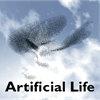异质阈值、社会排名和模糊类别的出现。
IF 1.5
4区 计算机科学
Q4 COMPUTER SCIENCE, ARTIFICIAL INTELLIGENCE
引用次数: 0
摘要
在阈值模型中,个体对世界特定状态的反应取决于相关测量值是否超过给定的阈值,这种模型在自然和人工系统中的各种社会学习和集体决策场景中都很常见。如果阈值在整个群体中是异质的,那么在个体反应是离散和有限的情况下,就会出现群体层面的分级反应。在本文中,我提出了一种基于阈值的共享质量类别社会学习模型。该模型与模糊类别的投票模型相结合,允许个体从同伴那里学习成员函数,然后用于决策,包括对一组可用选项进行排序。我使用基于代理的模拟实验来研究该模型的变体,并将它们与应用于排名问题的个人学习基准进行比较。这些结果表明,基于阈值的方法与社交网络中基于类别的投票相结合,为利用新出现的模糊性进行排序提供了一种有效的社交机制。本文章由计算机程序翻译,如有差异,请以英文原文为准。
Heterogeneous Thresholds, Social Ranking, and the Emergence of Vague Categories
Threshold models in which an individual’s response to a particular state of the world depends on whether an associated measured value exceeds a given threshold are common in a variety of social learning and collective decision-making scenarios in both natural and artificial systems. If thresholds are heterogeneous across a population of agents, then graded population level responses can emerge in a context in which individual responses are discrete and limited. In this article, I propose a threshold-based model for social learning of shared quality categories. This is then combined with the voting model of fuzzy categories to allow individuals to learn membership functions from their peers, which can then be used for decision-making, including ranking a set of available options. I use agent-based simulation experiments to investigate variants of this model and compare them to an individual learning benchmark when applied to the ranking problem. These results show that a threshold-based approach combined with category-based voting across a social network provides an effective social mechanism for ranking that exploits emergent vagueness.
求助全文
通过发布文献求助,成功后即可免费获取论文全文。
去求助
来源期刊

Artificial Life
工程技术-计算机:理论方法
CiteScore
4.70
自引率
7.70%
发文量
38
审稿时长
>12 weeks
期刊介绍:
Artificial Life, launched in the fall of 1993, has become the unifying forum for the exchange of scientific information on the study of artificial systems that exhibit the behavioral characteristics of natural living systems, through the synthesis or simulation using computational (software), robotic (hardware), and/or physicochemical (wetware) means. Each issue features cutting-edge research on artificial life that advances the state-of-the-art of our knowledge about various aspects of living systems such as:
Artificial chemistry and the origins of life
Self-assembly, growth, and development
Self-replication and self-repair
Systems and synthetic biology
Perception, cognition, and behavior
Embodiment and enactivism
Collective behaviors of swarms
Evolutionary and ecological dynamics
Open-endedness and creativity
Social organization and cultural evolution
Societal and technological implications
Philosophy and aesthetics
Applications to biology, medicine, business, education, or entertainment.
 求助内容:
求助内容: 应助结果提醒方式:
应助结果提醒方式:


